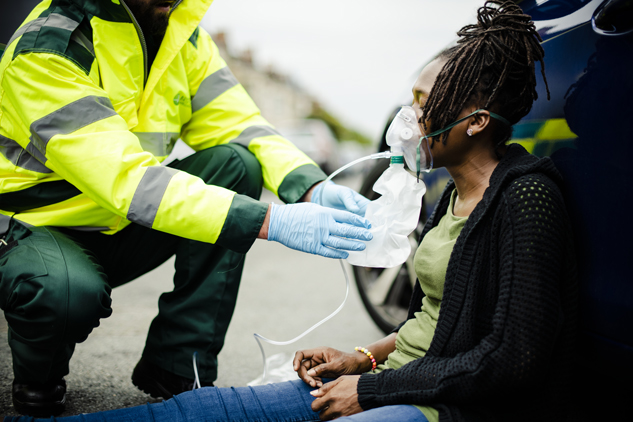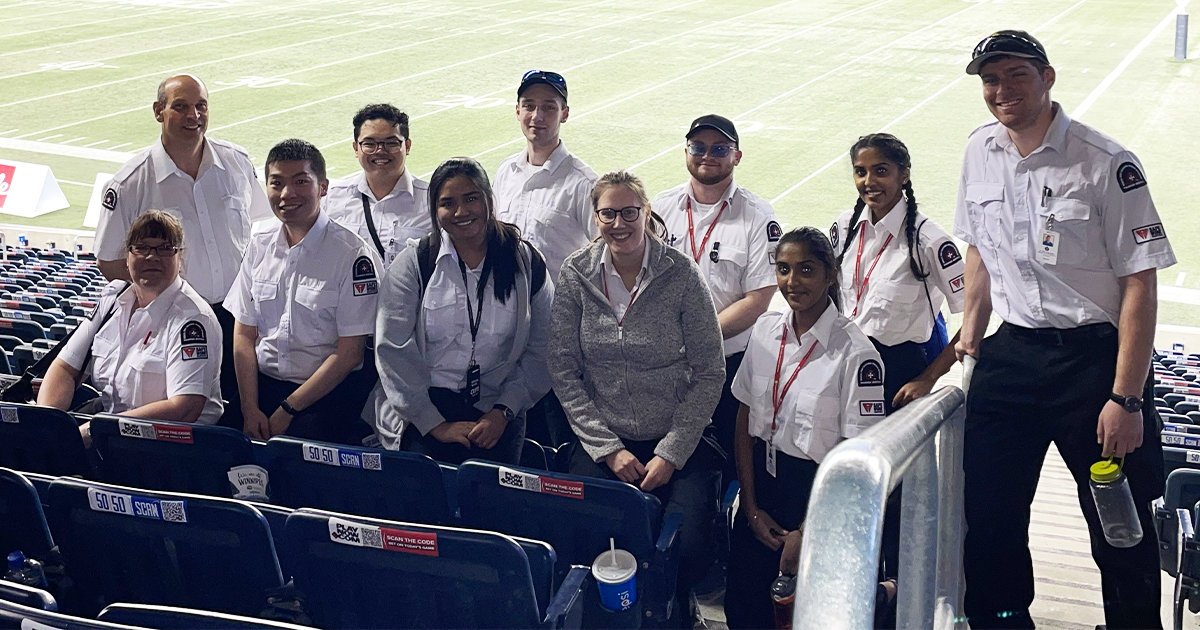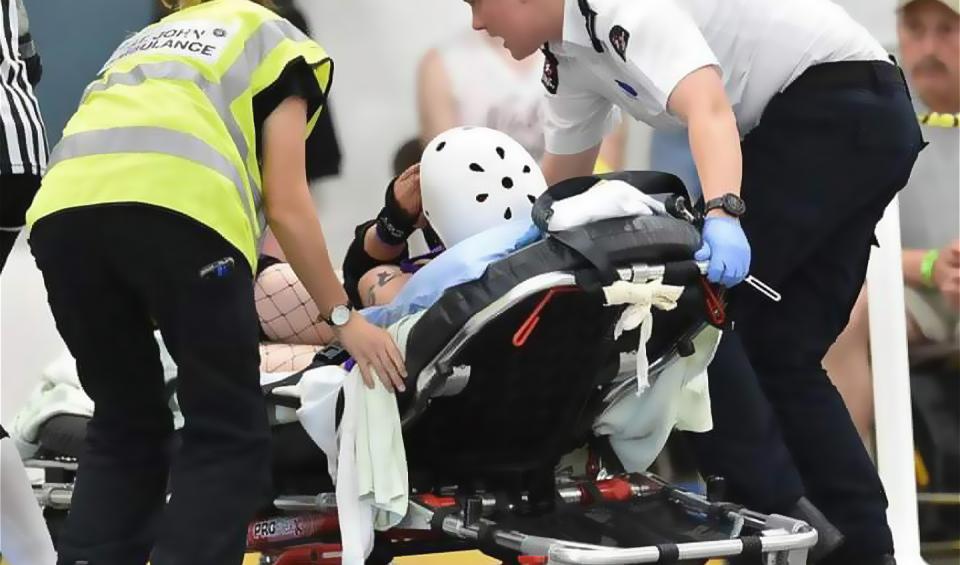
IS THE EMR COURSE RIGHT FOR YOU?
In emergencies, your actions can save lives. Do you thrive in high-stress, high-reward careers that demand quick decision-making, unwavering professionalism, and personal responsibility? Then, this emergency medical responder course is tailor-made for you.
Whether you’re looking to build a solid foundation in paramedic training, start your healthcare career or prepare for advanced education in healthcare, our course is a perfect fit. It’s ideal for individuals entering the healthcare field and well-suited for those interested in employment with ambulance services, fire departments, industrial projects, recreational facilities and more.
Your first aid training empowers volunteer heroes
When you train with St. John Ambulance, you’re giving back to communities across BC and the Yukon. Proceeds from our training courses fund initiatives like the Medical First Responder Program, where volunteers provide first aid services at public events, and the Therapy Dog Program, where volunteers and their four-legged friends provide comfort and joy to those in need.

Emergency Medical Responder Course - Blended
Course objective:
Successful completion of the course requirements will allow you to apply to the Emergency Medical Assistants Licensing Board (EMALB) for your license as an Emergency Medical Responder. You have 1 year from the completion of your course to complete the licensing process.
What you'll need to graduate:
- Attend all instructional sessions
- Participate fully in all practical exercises
- Complete the online assignments
- Score a minimum of 80% in the written components of the final exam
- Demonstrate competency in 2 practical examinations
Course format:
Pre-class online learning (30 hours)
Allow for a minimum of 30 hours of pre-class online learning. Start no later than one week before the in-class start date and complete before the first day of class.
In-class learning (70 hours)
Your in-class learning is 10 full days, plus homework assignments.
Learning includes:
- textbook reading
- hands-on instructor-led training
- online lessons and quizzes
- final written exam
- final practical assessment
Final examination & assessment:
written exam
The written exam must be completed online in one sitting outside of classroom hours.
Practical exam
The practical assessment is held on the last day of class.
What you'll learn:
- Introduction to EMS and Legal & Ethical Issues
- Well Being of the EMR and Scene Assessment
- EMS Operations
- Anatomy and Physiology
- Pharmaceuticals
- Personal Protective Equipment
- Lifting and Moving
- Spinal Management
- Patient Assessment Primary
- CPR - HCP
- Airway Management
- Integrated CPR Calls
- Communication and Documentation
- Patient Assessment
- PAM Integration
- Geriatric Considerations
- Psychological Interventions and Crisis Intervention
- Medical Emergencies
- Emergency childbirth
- Bites and Stings
- Agricultural and Industrial Emergencies
- Introduction to Trauma
- Stable Musculoskeletal Injuries
- Infants and Children Emergency
- Hazardous Material Incidents and Emergencies
- Multiple Casualty Incidents and Incident Command
- Water Emergencies
- Vehicle Stabilization and Patient Extrication
- Special Rescue Situations
- Unstable Musculoskeletal Injuries
Book a course today
2026 Schedule
Start Date | Location | Duration | Link |
|---|---|---|---|
Jan 26 – Feb 7 | Vancouver Branch | Online (self-study): Classroom (Mon - Fri): | |
Feb 23 – Mar 7 | Vancouver Branch | Online (self-study): Classroom (Mon - Fri): | |
Mar 16 – 27 | Kamloops Branch | Online (self-study): Classroom (Mon - Fri): | |
Jul 6 – 17 | Terrace Branch | Online (self-study): Classroom (Mon - Fri): | |
Aug 17 – 29 | Vancouver Branch | Online (self-study): Classroom (Mon - Fri): | |
Aug 17 – 28 | Kamloops Branch | Online (self-study): Classroom (Mon - Fri): | |
Sep 14 – 26 | Vancouver Branch | Online (self-study): Classroom (Mon - Fri): | |
Oct 19 – 31 | Vancouver Branch | Online (self-study): Classroom (Mon - Fri): | |
Nov 16 – 27 | Kamloops Branch | Online (self-study): Classroom (Mon - Fri): | |
Nov 23 – Dec 5 | Vancouver Branch | Online (self-study): Classroom (Mon - Fri): |
Getting an Emergency Medical Assistant licence in British Columbia:
Step 1
Once you complete the SJA Emergency Medical Responder (EMR) course, request an evaluation from the Emergency Medical Assistants Licensing Board (EMALB). You’ll be required to pass the approved examinations for your license level within 12 months of completing your EMR course.
Step 2
Apply for your license through the EMALB. Please note there may be additional requirements from the EMALB in order to apply for your license.
For additional licensing information, please visit the Government of BC website.
Equivalent Certificate:
Once licensed by the Emergency Medical Assistants Licensing Board(EMALB), your licence is recognized as a WorkSafeBC-approved Advanced First Aid Certificate.
EMR Career Options:
- Work with the BCEHS (BC Health Services / BC Ambulance Services)
- Rural ambulance services
- Fire departments
- Law enforcement agencies
- Recreational facilities
- Community response teams
- Ski patrol and rescue
- and more
Post-EMR Education:
Use our certification as a solid stepping stone in your education path. It qualifies you for further studies like:
- Primary Care Paramedic (PCP)
- Advanced Care Paramedic (ACP)
- Critical Care Paramedic (CCP)
- Diploma or Degree in Health Sciences (e.g. Nursing or Medicine)
